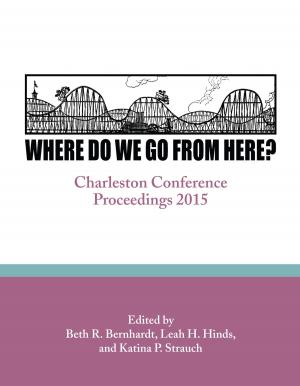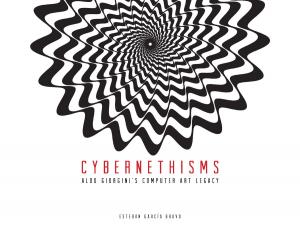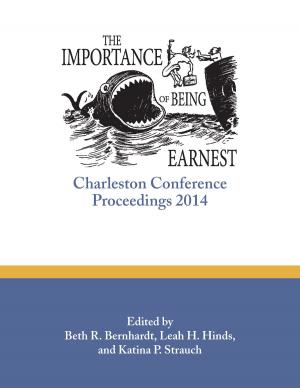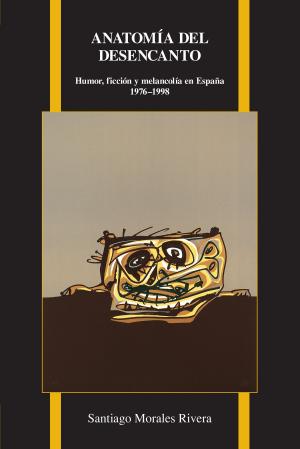Crisis y reemergencia
El Siglo Xix En la Ficción Contemporánea de Argentina, Chile Y Uruguay (1980–2001)
Fiction & Literature, Literary Theory & Criticism, Central & South American| Author: | Verónica Garibotto | ISBN: | 9781612493947 |
| Publisher: | Purdue University Press | Publication: | August 30, 2015 |
| Imprint: | Purdue University Press | Language: | Spanish |
| Author: | Verónica Garibotto |
| ISBN: | 9781612493947 |
| Publisher: | Purdue University Press |
| Publication: | August 30, 2015 |
| Imprint: | Purdue University Press |
| Language: | Spanish |
En las últimas décadas-especialmente a partir de los noventa-ha habido una visible reemergencia del siglo XIX en la cultura del Cono Sur. Figuras decimonónicas típicas (indios, gauchos, letrados y cautivas) han reaparecido en la escena literaria de Argentina, Chile y Uruguay. Héroes como San Martín y Artigas se han convertido en protagonistas principales de la literatura, el cine y el teatro. Géneros fundantes de la identidad nacional (el relato de viaje, la poesía gauchesca, el romance nacional) se han reciclado y transformado. Textos canónicos como La cautiva, el Martín Fierro y el Facundo han sido reescritos una vez más en diferentes campos artísticos. Y controvertidos eventos históricos (las guerras civiles, las masacres de las comunidades indígenas) han sido revisados y vueltos a narrar. Combinando el análisis textual con una perspectiva más abarcadora anclada en la teoría cultural, este libro responde a dos preguntas interrelacionadas: ¿por qué el siglo XIX ha resurgido de manera tan fuerte en las últimas décadas? ¿Cuáles son las implicaciones ideológicas de esta reemergencia?A través de una comparación transnacional de Argentina, Chile y Uruguay, y de una lectura de la ficción producida por figuras prominentes en los tres países (activistas políticos, intelectuales públicos y autores canónicos), Crisis y reemergencia contribuye a dilucidar cómo el campo cultural del Cono Sur ha cambiado desde los noventa: cómo la ética intelectual, las identidades nacionales y las estrategias discursivas que fueron funcionales a la consolidación del liberalismo en el siglo XIX han sido reformuladas, transformadas y repensadas en las últimas décadas. Apoyándose en el marxismo cultural, el análisis del discurso y la teoría poscolonial, el libro apunta a una triple contribución: definir los componentes ideológicos y discursivos que están en el corazón del siglo XIX, mostrar su continuidad hasta los noventa (y aclarar así las conexiones entre liberalismo y neo-liberalismo) y exponer su reciente transformaciónuna transformación que abrió el camino a lo que se ha llamado el "retorno de lo político" en la región.
In the last decades-and especially since the 1990s-there has been a noticeable reemergence of the nineteenth century in Southern Cone culture. Popular nineteenth-century figures (indios, gauchos, letrados, and cautivas) have reentered the national literary scene in Argentina, Chile, and Uruguay. Nineteenth-century heroes such as San Martín and Artigas are again the main protagonists of Southern Cone theater, film, and literature. Canonical nineteenth-century texts (La cautiva, Martín Fierro, Facundo) are being rewritten one more time in different artistic fields. Foundational nineteenth-century genres (travel narratives, gauchesque poems, and national romances) are being transformed and recycled. Controversial nineteenth-century events (the civil wars, the massacre of indigenous communities) are being revisited and explored. Through a combination of close textual analysis and a broader perspective rooted in cultural theory, this book answers two interrelated questions: Why did the nineteenth century resurface so strongly in the last decades? What are the ideological implications of this reemergence?Based on a transnational comparison of Argentina, Chile, and Uruguay, and a survey of narratives that were mostly produced by well-known figures (political activists, public intellectuals, and canonical authors), Crisis y reemergencia helps to elucidate how the Southern Cone cultural field has changed since the 1990s: how intellectuals' ethics, national identities, and discursive strategies that were functional to the consolidation of liberalism in the nineteenth century have been challenged, transformed, and rethought in the last decades. Borrowing from cultural Marxism, discourse analysis, and postcolonial theory, the book pursues a triple contribution: to define the discursive and ideological components that were at the core of the nineteenth century, to show their continuity up to the 1990s (and thus clarify the connections between liberalism and neoliberalism), and to expose their recent transformation-a transformation that paved the way for the "return of the political" to the region.
En las últimas décadas-especialmente a partir de los noventa-ha habido una visible reemergencia del siglo XIX en la cultura del Cono Sur. Figuras decimonónicas típicas (indios, gauchos, letrados y cautivas) han reaparecido en la escena literaria de Argentina, Chile y Uruguay. Héroes como San Martín y Artigas se han convertido en protagonistas principales de la literatura, el cine y el teatro. Géneros fundantes de la identidad nacional (el relato de viaje, la poesía gauchesca, el romance nacional) se han reciclado y transformado. Textos canónicos como La cautiva, el Martín Fierro y el Facundo han sido reescritos una vez más en diferentes campos artísticos. Y controvertidos eventos históricos (las guerras civiles, las masacres de las comunidades indígenas) han sido revisados y vueltos a narrar. Combinando el análisis textual con una perspectiva más abarcadora anclada en la teoría cultural, este libro responde a dos preguntas interrelacionadas: ¿por qué el siglo XIX ha resurgido de manera tan fuerte en las últimas décadas? ¿Cuáles son las implicaciones ideológicas de esta reemergencia?A través de una comparación transnacional de Argentina, Chile y Uruguay, y de una lectura de la ficción producida por figuras prominentes en los tres países (activistas políticos, intelectuales públicos y autores canónicos), Crisis y reemergencia contribuye a dilucidar cómo el campo cultural del Cono Sur ha cambiado desde los noventa: cómo la ética intelectual, las identidades nacionales y las estrategias discursivas que fueron funcionales a la consolidación del liberalismo en el siglo XIX han sido reformuladas, transformadas y repensadas en las últimas décadas. Apoyándose en el marxismo cultural, el análisis del discurso y la teoría poscolonial, el libro apunta a una triple contribución: definir los componentes ideológicos y discursivos que están en el corazón del siglo XIX, mostrar su continuidad hasta los noventa (y aclarar así las conexiones entre liberalismo y neo-liberalismo) y exponer su reciente transformaciónuna transformación que abrió el camino a lo que se ha llamado el "retorno de lo político" en la región.
In the last decades-and especially since the 1990s-there has been a noticeable reemergence of the nineteenth century in Southern Cone culture. Popular nineteenth-century figures (indios, gauchos, letrados, and cautivas) have reentered the national literary scene in Argentina, Chile, and Uruguay. Nineteenth-century heroes such as San Martín and Artigas are again the main protagonists of Southern Cone theater, film, and literature. Canonical nineteenth-century texts (La cautiva, Martín Fierro, Facundo) are being rewritten one more time in different artistic fields. Foundational nineteenth-century genres (travel narratives, gauchesque poems, and national romances) are being transformed and recycled. Controversial nineteenth-century events (the civil wars, the massacre of indigenous communities) are being revisited and explored. Through a combination of close textual analysis and a broader perspective rooted in cultural theory, this book answers two interrelated questions: Why did the nineteenth century resurface so strongly in the last decades? What are the ideological implications of this reemergence?Based on a transnational comparison of Argentina, Chile, and Uruguay, and a survey of narratives that were mostly produced by well-known figures (political activists, public intellectuals, and canonical authors), Crisis y reemergencia helps to elucidate how the Southern Cone cultural field has changed since the 1990s: how intellectuals' ethics, national identities, and discursive strategies that were functional to the consolidation of liberalism in the nineteenth century have been challenged, transformed, and rethought in the last decades. Borrowing from cultural Marxism, discourse analysis, and postcolonial theory, the book pursues a triple contribution: to define the discursive and ideological components that were at the core of the nineteenth century, to show their continuity up to the 1990s (and thus clarify the connections between liberalism and neoliberalism), and to expose their recent transformation-a transformation that paved the way for the "return of the political" to the region.















